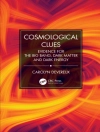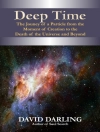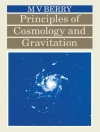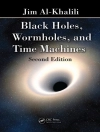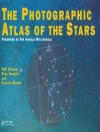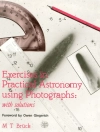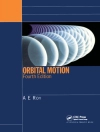Modern research has demonstrated that many stars are surrounded by planets—some of which might contain the right conditions to harbor life. This has only reinforced a question that has been tormenting scientists, philosophers and priests since Antiquity: Are there other inhabited worlds beyond our own?
This book analyzes the many ways that humans have argued for and depicted extraterrestrial life over the centuries. The first known texts about the subject date from as early as the 6th century BC. Since that time, countless well-known historical characters like Lucretius, Aristotle, Thomas Aquinas, Cusanus, Bruno, Kepler, Descartes, and Huygens contributed to the debate; here, their lesser known opinions on the subject are studied in detail.
It is often difficult for the modern mind to follow the thinking of our ancestors, which can only be understood when placed in the relevant context. The book thus extends its scope to the evolution of ideas about cosmology in general, as well as the culture in which these great thinkers wrote. The research is presented with the author’s insights and humor, making this an easy and enjoyable read.
Innehållsförteckning
1. Introduction: Myth or fact/reality.- 2. From Anaximander to Lucretius: Plurality from chance.- 3. Pythagoras, Plato and Ptolemy: Unicity by design.- 4. Plutarch’s De Facie: The Moon is another Earth.- 5. Patristic cosmology confirms the single world.- 6. Scholastics invent virtual Plurality.- 7. Nicolaus Cusanus: Homogeneous Cosmos.- 8. Nicolaus Copernicus: Earth no center.- 9. Giordano Bruno: Lame compasses but agile pen.- 10. Galileo Galilei: Technicians oust metaphysicians.- 11. Johannes Kepler: Servo-controlled planets orbiting a Sun-God.- 12. René Descartes and Cartesians: Multiple worlds from vortex power.- 13. Christiaan Huygens: Humans give its present-day form extraterrestrial intelligence.- 14. The time coordinate of Plurality.- 15. The discovery of time.- 16. Epilogue: Today’s myth.- Bibliography.- Notes.- Index.
Om författaren
Dr. James Lequeux completed his Ph D thesis in radioastronomy in 1962 and was an assistant, then associate, professor of physics and astronomy at Paris University until 1966. He was an Astronomer from 1966-1999 and an invited scientist at Cal Tech from 1968-1969. Dr. Lequeux was also the Director of the Marseilles Observatory from 1983-1988 and was Editor-in-Chief of the journal Astronomy & Astrophysics for 15 years. He retired in 1999 and then began work on the history of astronomy, a subject he presently writes about. Dr. Lequeux has published over 403 papers and six books, including The Interstellar Medium (Springer 2005), Le Verrier: Magnificent and Detestable Astronomer (Springer 2013), and François Arago (Springer 2016).
Dr. Pierre Connes joined the laboratory at CNRS after his university studies in Dijon. There, he helped revolutionize the techniques of analyzing the light of the stars and was a pioneer in Fourier transformation spectroscopy. Connes was a long-time beloved friend of the Astronomical Society of Burgundy. He passed away on February 22, 2019 at the age of 90.


